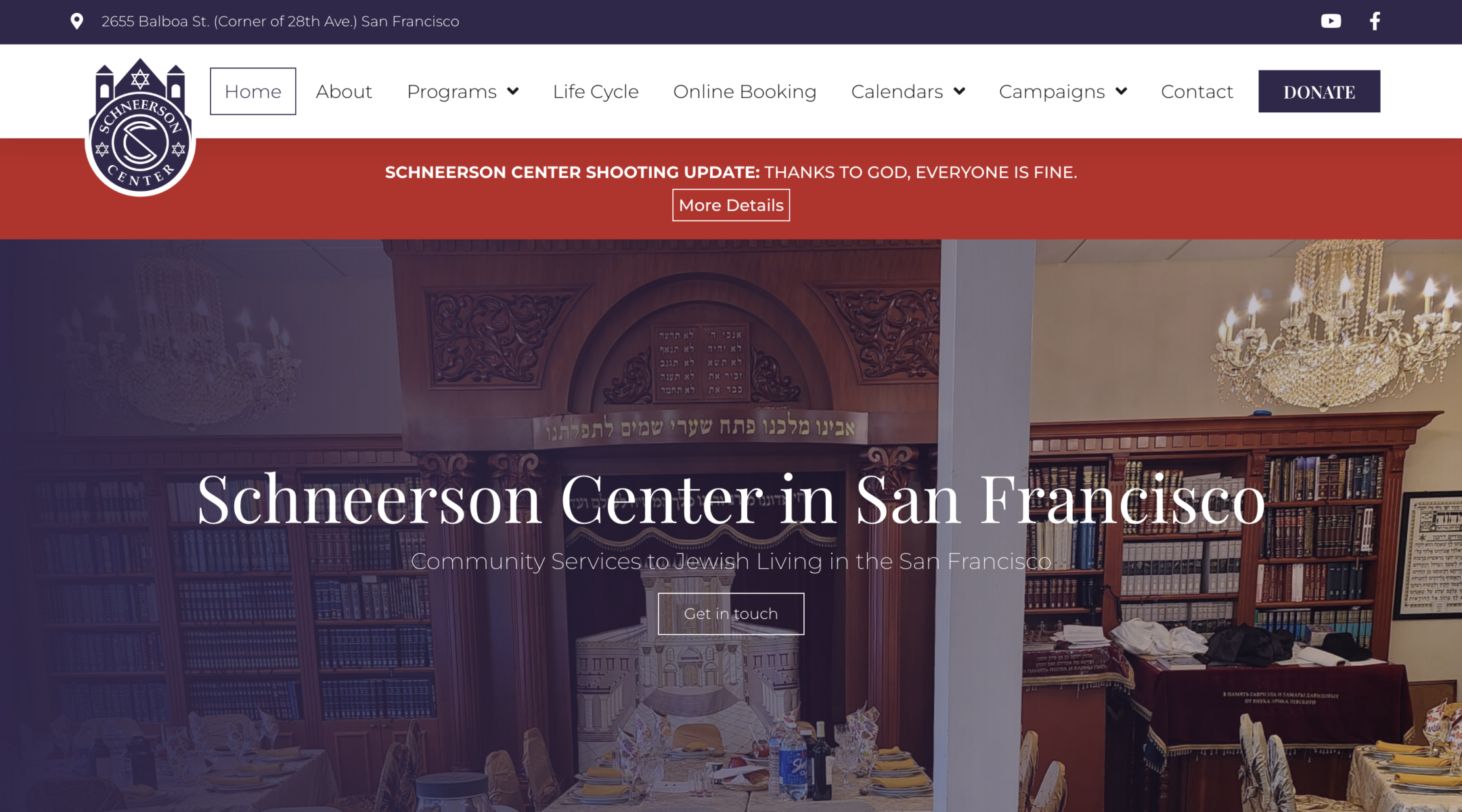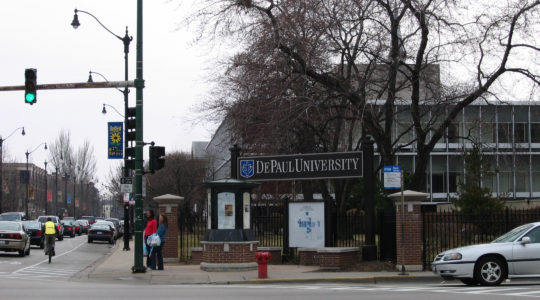(JTA) — Police in San Francisco have arrested a man they believe is responsible for shooting blanks during a study session inside a Jewish center there.
The San Francisco Police Department announced an arrest early Saturday in the incident, which took place on Wednesday but was not reported to authorities until the following day. They said they had detained a man in the city’s Richmond District and uncovered evidence in a search tying him to the incident at the Schneerson Jewish Center and to a different incident in a local theater.
The police did not release the name of the man they arrested, but the San Francisco’s Sheriff’s Office shows that Dmitri Mishin, 51, was booked early Saturday morning on charges of disturbing a religious meeting and drawing or exhibiting an imitation firearm. He remained in the county jail as of Monday morning.
Mishin appears to have posted a video on social media days before the shooting showing something burning outside the Schneerson Center, according to a report in The San Francisco Standard, a local news organization; a Twitter account that appears to have been his also posted antisemitic imagery in the days before the shooting incident.
People at the Jewish center, which largely serves Russian-speaking immigrants, did not call police when the man brandished a gun during a study session. They said they thought the man was mentally ill.
“At the beginning, we weren’t sure. I wasn’t so upset,” Mattie Pil, who runs the Schneerson Center with her husband Rabbi Bentziyon Pil, told The Standard after learning about the shooter’s identity. “But now I’m getting to the point that I’m disturbed a little. It’s not a simple case like I thought.”
Mattie Pil also addressed the incident in a short video about the weekly Torah portion that she uploaded to YouTube on Friday.
The incident has returned the Pils to headlines decades after they first landed in the spotlight because of legal troubles related to nonprofits that they ran at the time. In the 1990s, The Wall Street Journal raised questions about the financial practices of the couple’s used-car donation nonprofit; Bentziyon Pil ultimately pled guilty to a financial crime after a sprawling investigation spurred by the newspaper’s reporting and was sentenced to nine months in a halfway house.
Pil and her husband are followers of the last Chabad-Lubavitch rabbi, Menachem Mendel Schneerson, but they are not official emissaries of the Chabad movement. In fact, shortly after the Wall Street Journal expose ran, the couple received Chabad’s first-ever formal request to stop using Schneerson’s name, which they then used for an elementary school they operated. Bentziyon Pil said at the time that he did not intend to comply.
The shooting incident has also drawn attention to a different Jewish community center serving Russian-speaking immigrants that opened in San Francisco last year less than a mile from the Schneerson Center. (The reclusive founder of WhatsApp, Jan Koum, donated to buy the $3.5 million building.)
Rabbi Shimon Margolin, the center’s founder, issued a video statement in Russian on Facebook and sent viewers to the center’s page for more information.
“The Russian-speaking Jewish Community of SF Bay Area expresses our sympathy, support and solidarity with the community of the Schneerson Jewish Center,” the center said in a statement that outlined its own security practices, which it said had been supported by federal authorities and the local Jewish federation.
“No one can enter our community center at will — the doors are locked at all times and someone has to knock and be screened in order to enter our building,” the center wrote. “We are in the process of adding material improvements to our building that would enhance the security even further.”
As for the Schneerson Center, its website displayed a bright red banner over the weekend. It read in all capital letters, “Schneerson Center shooting update: Thanks to God, everyone is fine.”
JTA has documented Jewish history in real-time for over a century. Keep our journalism strong by joining us in supporting independent, award-winning reporting.






